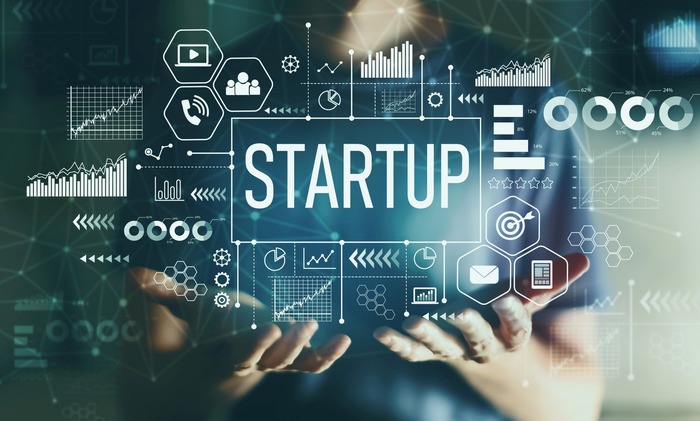In the past, building a startup felt like a pursuit reserved for a select few: those with the right connections, technical skills, and access to capital. But what if your next co-founder wasn’t human? Imagine a tireless AI partner: always available, lightning-fast, and ready to contribute wherever needed. Suddenly, the doors to entrepreneurship swing wide open.
This is not science fiction; it is already happening. Startups are being built with AI as a co-creator, reshaping how companies are launched and scaled.
The AI-native founder mindset
Startup founders once needed a blend of technical, business, and design expertise to get started. Today, AI tools bridge those gaps. If you don’t code, models like GPT-4o can generate working prototypes. Need a pitch deck? AI can draft, refine, and tailor it for different investor profiles. Facing go-to-market challenges? Feed your research into an AI system and receive synthesised insights and actionable recommendations.
AI as your fastest hire
Startups move fast. Now, with AI, they move faster than humanly possible. Founders can go from idea to prototype in days, mocking up UI with generative design tools, building apps with code models, and running user research with GPT-based agents that draft scripts, conduct interviews, and analyse feedback. But speed alone is not the advantage, the real edge is learning and iterating faster than anyone else.
For solo founders, AI is more than a productivity boost; it is a team. With the right tools, you can simulate a cross-functional founding crew:
• Product Manager: AI writes user stories and prioritises features.
• Developer: Code assistants build and debug software.
• Marketer: Tools like Jasper or Copy.ai generate copy, test variants, and manage social media.
• Legal & Ops: GPT-based agents draft terms, NDAs, and tables.
Even design is no longer a bottleneck. Tools like Beautiful.ai automate pitch deck creation, enabling founders to present polished, investor-ready slides without hiring a designer.
What once required hiring or outsourcing can now be accomplished with an AI stack, giving lean teams the power to build, learn, and scale at unprecedented speed.
AI at the core: Building with intelligence and integrity
Today’s most forward-thinking startups are not just using AI; they are built around it. These founders prototype with AI, test ideas instantly, and refine products based on simulated feedback. They design autonomous workflows where AI agents handle support, onboarding, and fraud detection. Even with limited data, they train custom models to solve niche problems. One example is Moveworks, an AI-powered platform that automates employee support and integrates with Slack and Microsoft Teams to resolve workplace issues instantly.
In this new model, AI is not a feature; it is infrastructure. But with this power comes responsibility. When AI becomes a co-pilot, the quality of decisions depends on the clarity of prompts, the integrity of data, and the founder’s critical thinking. Bias in models can lead to biased outcomes. Over-automation risks fragile systems. Mishandled data can compromise privacy. Founders must lead with an ethical compass, embedding transparency, fairness, and accountability into every layer of their AI-driven operations, just as they would with any human-led team.
The new blueprint: Lean teams, smart tools, and vision-led ventures
Investors are shifting their focus. A growing number of VCs are backing AI-first solopreneurs, not despite their lean teams, but because of them. These founders are capital-efficient, quick to pivot, and proof that smart individuals using the right tools can outperform larger, slower-moving organisations. Some are even launching multiple micro-startups in parallel, powered by AI agents – a form of entrepreneurship that was unimaginable just a few years ago.
As AI becomes more embedded in the startup process, its role is evolving. Legally and ethically, it is not a co-founder. But functionally, it is starting to look like one. When a tool drives workflows, shapes strategy, and accelerates execution to the point of being irreplaceable, it deserves more than a footnote – it deserves recognition.
Think of AI not as a sidekick, but as a layer of collective intelligence that amplifies human vision. You still need the dream, the drive, and emotional intelligence. But now, you have a team that never sleeps.
And that changes everything. You no longer need a six-figure budget to launch a business. You do not need a technical co-founder. You do not need to wait until you have “learned enough”. With AI, the gap between idea and execution has collapsed.
The real question is not “Can I build this?”
It is “Should I?”
And in a world where anything can be built, the future belongs to those who choose to build what truly matters.
Agathas Agu is a product and programme management expert with a background in enterprise technology and experience as an Oracle Applications Developer. She combines technical skill with strategic leadership to drive digital transformation, streamline operations, and deliver user-focused solutions. Agathas is known for bridging business and technical teams to deliver impact at scale.








